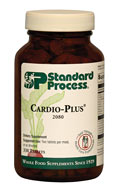Heart Problems and Adrenals

|
Franklin P. Adams |
The adrenals are an integral part of the endocrine system. The adrenals are walnut-sized glands located on top of each kidney, where they serve as important manufacturing centers for many of the body’s hormones. They are responsible for producing several important hormones and are critical to the stress response. The adrenal glands produce their array of hormones in a complex symphony that is orchestrated by two structures in the brain called the hypothalamus and the pituitary gland.
the cortex and the medulla
The cortex is the outer wrapping of the gland. It produces cortisol, which is a powerful anti-inflammatory hormone. Cortisol controls inflammation. The level of Cortisol in the body affects heart, allergies, wound healing, asthma, fibromyalgia, arthritis, and lupus, just to name a few. The cortex produces also DHEA, and the sex hormones estrogen, progesterone, and testosterone.
The medulla, which is the inner part, pours out epinephrine (adrenaline) and norepinephrine. These hormones speed up the body's metabolism in order to help us to cope with stress. These are the two most important hormones in the body. They govern the fight or flight response (alarm reaction), and are almost a direct extension of the nervous system.
Your adrenals are really important, because they help you respond to stress. If you have chronic stress, your adrenals get beat up, and it is difficult to manage your life, and your energy plummets. You feel tired and wired. You get palpitations. You feel anxious. You have trouble sleeping. You might crave salt. You may get dizzy when you stand up. You might have low blood pressure. You might even have sugar cravings, because your blood sugar can’t be regulated. All these are clues that you could have adrenal problems.
Every day a variety of stressors signal our adrenal glands to produce stress hormones. A wide range of physical and psychological demands like a stressful job, family responsibilities, relationship dynamics, lack of sleep, financial concerns, dieting and emotional distress trigger our adrenals to provide relatively small blasts of strength in the form of hormones such as cortisol and adrenaline. From waking us up with a little burst of energy in the morning, to keeping us awake, alert, and focused throughout the rest of the day, our adrenals are crucial to our health.
When our adrenal glands are constantly required to sustain high cortisol levels, they eventually become impaired in their ability to respond appropriately.
If the adrenals do not work properly, this can affect oxygen levels, causing you to feel out of breath, particularly when the body is stressed, such as while climbing stairs. The lower legs also will feel heavier.
- How weak adrenals affect the coronary artery
- Why weak adrenals lead to high blood pressure
- How weak adrenals lead to arteriosclerosis
- How weak adrenals trigger ringing in the ear causing
- Why with weak adrenals you to feel out of breath
- Why a person with asthma needs a lung steroid inhaler which is adrenal hormone











